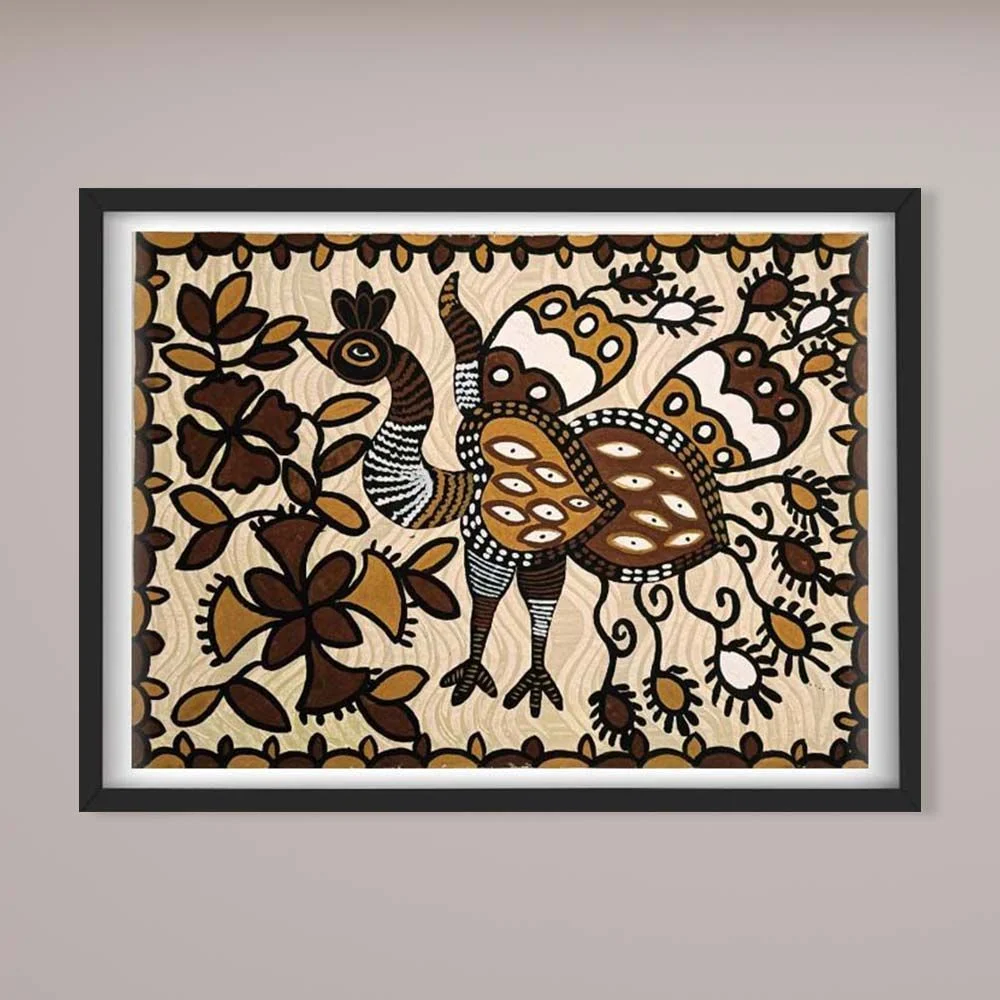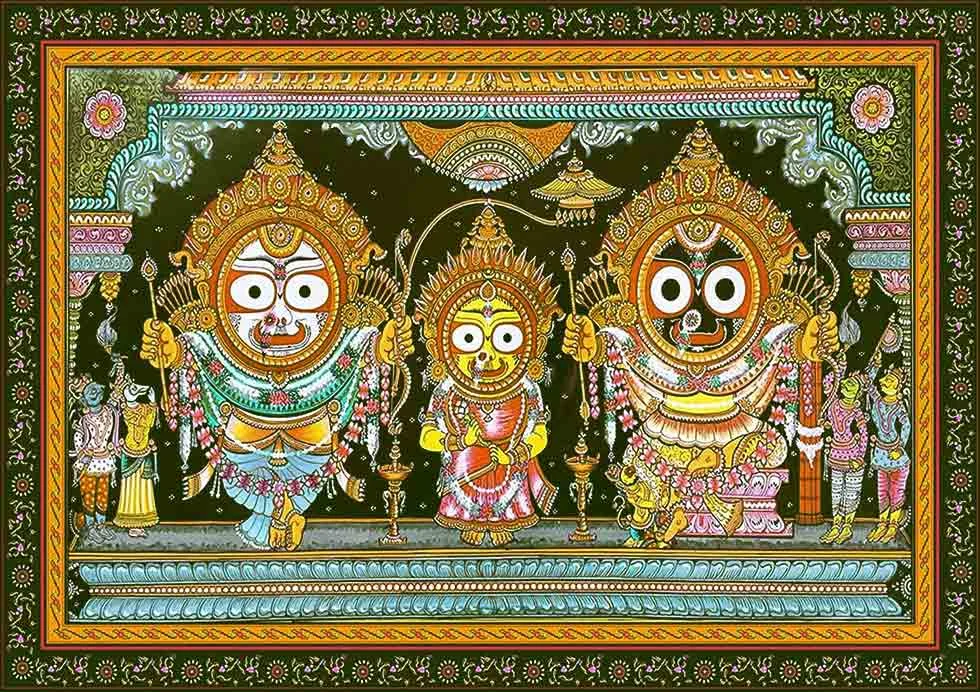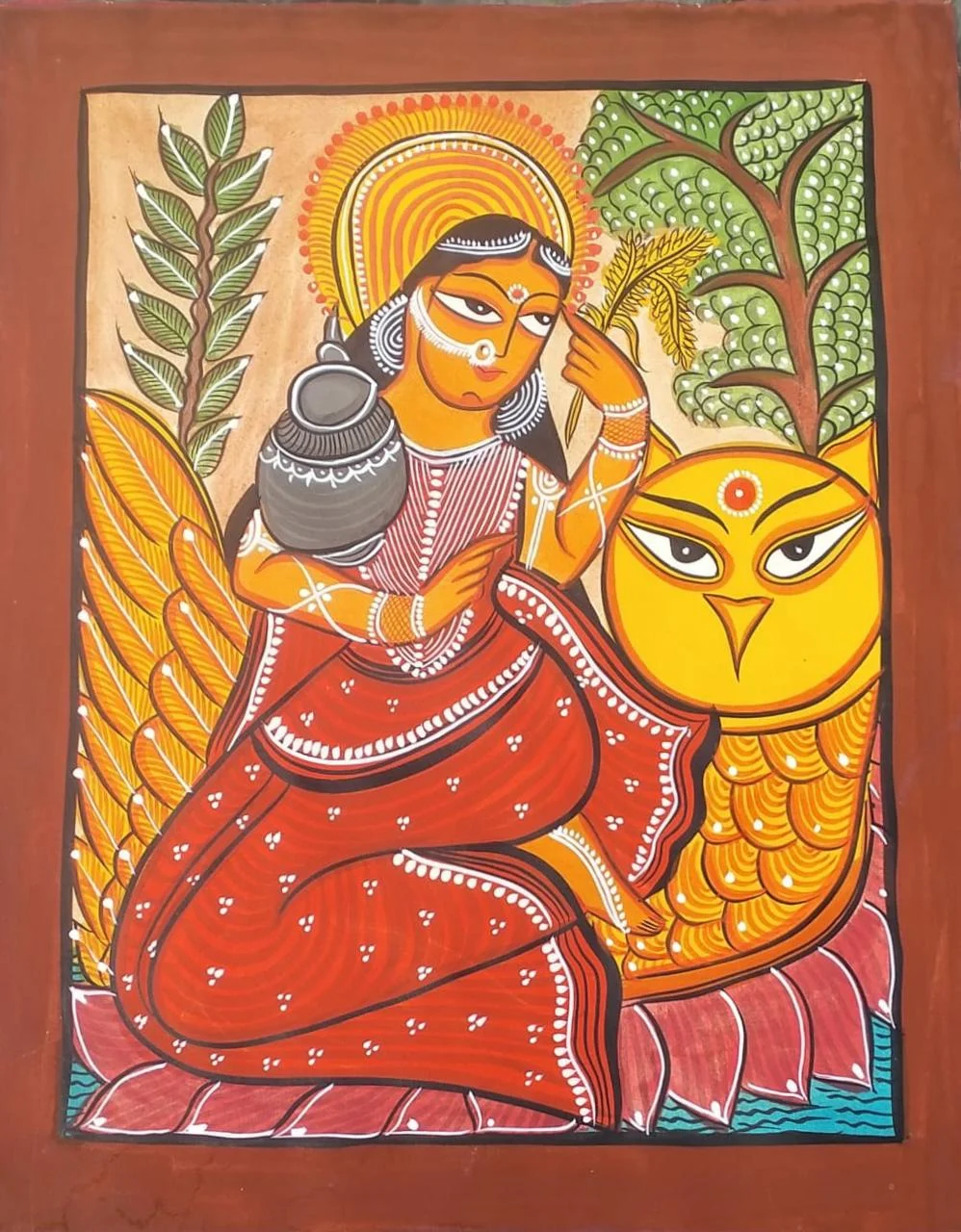Sohrai, Pattachitra, and Patua Paintings | 26 Jul 2025
Why in News?
Artists from Jharkhand, Odisha, and West Bengal participated in the 2nd edition of Kala Utsav 2025 – 'Artists in Residence Programme' at Rashtrapati Bhavan, showcasing traditional paintings like Sohrai Khovar, Pattachitra, and Patua.
- The program honors India’s living art traditions while offering a platform for folk, tribal, and traditional artists to showcase their work.
What are the Key Facts Regarding Sohrai, Pattachitra, and Patua Paintings?
- Sohrai Painting: It is a traditional indigenous art form practiced by women from various tribal communities in the Hazaribagh region of Jharkhand, including the Kurmi, Santhal, Munda, Oraon, Agaria, and Ghatwal groups.
- Known as harvest art, it is deeply linked to agriculture and cattle domestication. The term 'Soh' or 'Soro' means to drive away, and 'Rai' refers to a stick.
- As part of the ritual, mandalas or aripan are drawn with rice gruel to welcome cattle into homes, a task performed by village women using their fingers.
- Sohrai Khovar Painting has received the Geographical Indication (GI) tag in the year 2020.
- Patta Chitra: Originating in Odisha, it is closely associated with the Jagannath Temple in Puri, where it is traditionally used to decorate the sanctum sanctorum.
- Pattachitra, painted on cloth (Pata) coated with chalk powder and tamarind seed glue, uses natural colors from vegetable, earth, and mineral sources.
- Themes include religious, mythological, and folk stories, notably Krishna Leela and Lord Jagannath.
- Without pencils or charcoal, artists start with borders and sketch directly with light red and yellow brushes, finishing with a lacquer coating for shine and water resistance.
- Patua Painting: It is a folk art tradition from West Bengal, practiced by the Patua or Chitrakar community (both Hindu and Muslim).
- Patua artisan community is also found in Bihar, Jharkhand, Odisha, and parts of Bangladesh.
- It is painted on cloth scrolls called pati or patta, backed with old sari fabric, using bamboo-goat hair brushes and vegetable dyes fixed with gum.
- It is used to narrate Mangal Katha, especially by Hindu Patuas in Kalighat and Kumartuli.
UPSC Civil Services Examination, Previous Year Questions (PYQs)
Q. The well-known painting “Bani Thani” belongs to the (2018)
(a) Bundi school
(b) Jaipur school
(c) Kangra school
(d) Kishangarh school
Ans: (d)
Q. The painting of Bodhisattva Padmapani is one of the most famous and oft-illustrated paintings at (2017)
(a) Ajanta
(b) Badami
(c) Bagh
(d) Ellora
Ans: (a)
Q. Kalamkari painting refers to
(a) a hand-painted cotton textile in South India
(b) a handmade drawing on bamboo handicrafts in North-East India
(c) a block-painted woollen cloth in Western Himalayan region of India
(d) a hand-painted decorative silk cloth in North Western India
Ans: (a)



